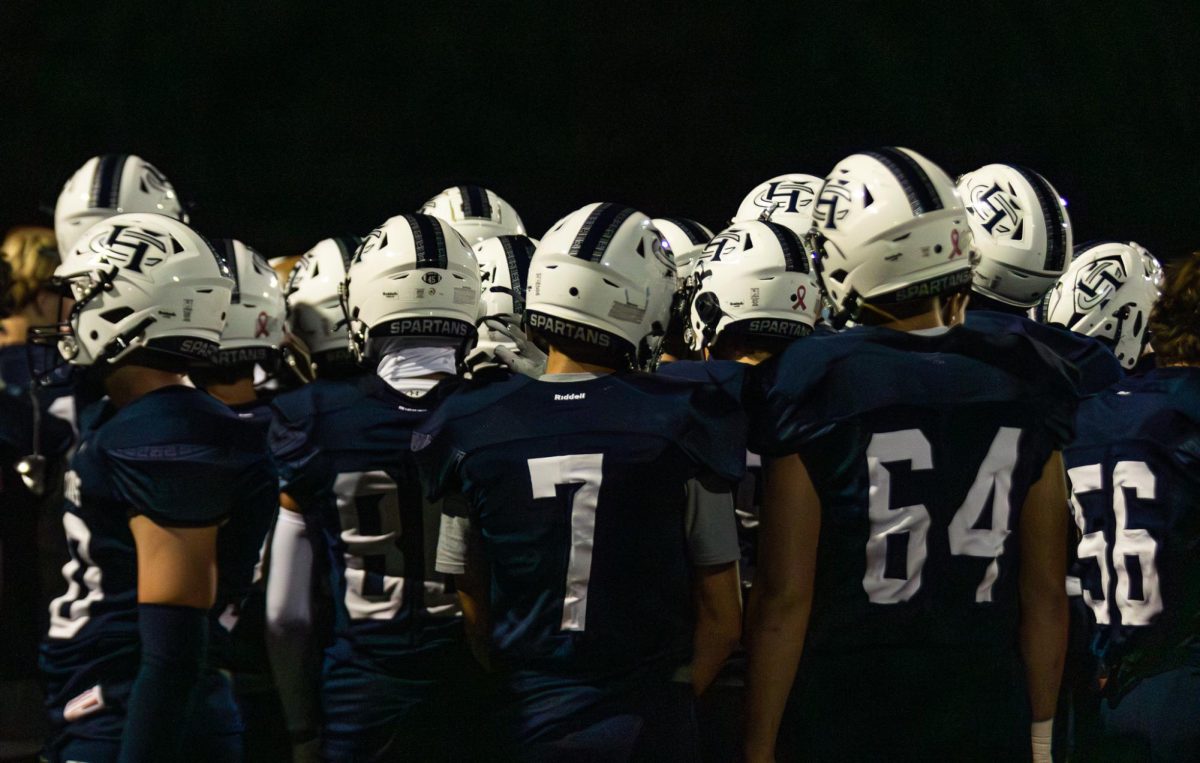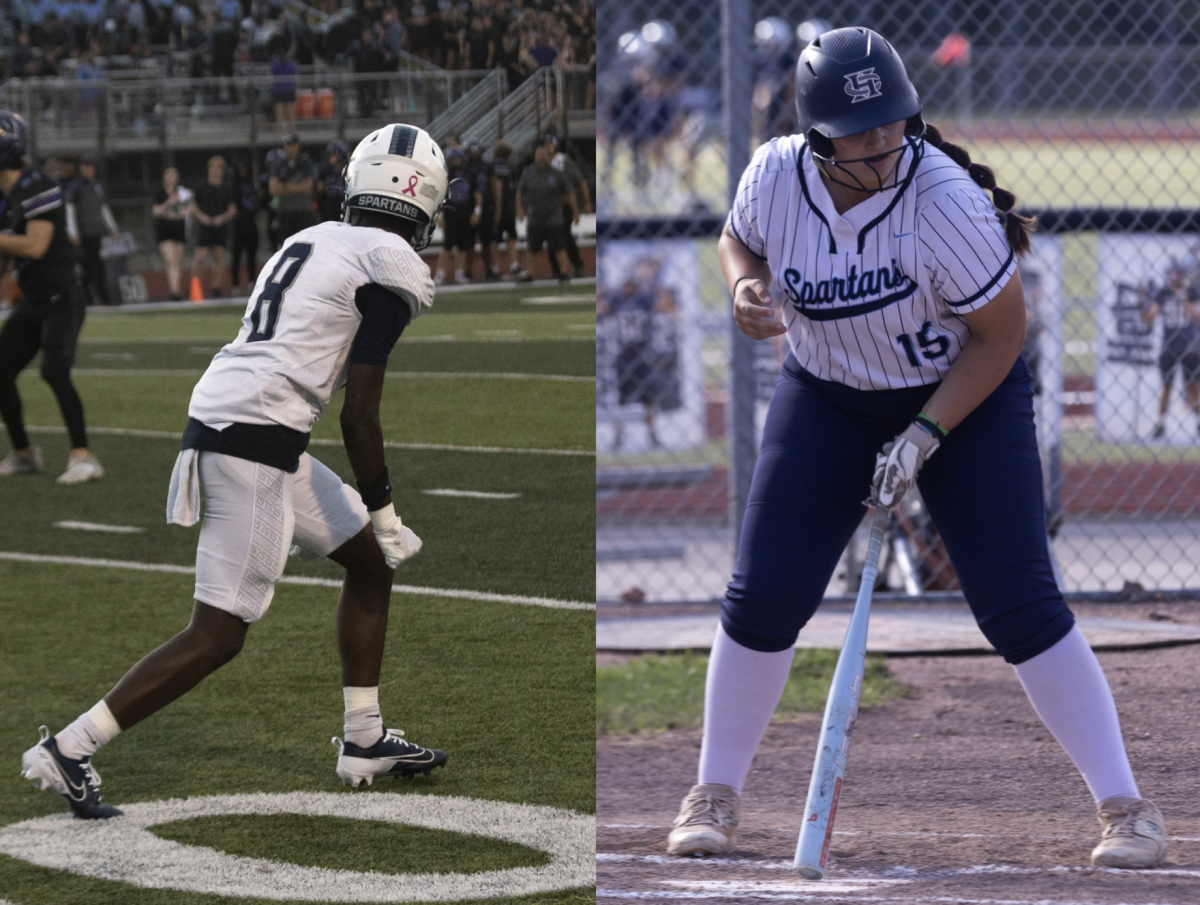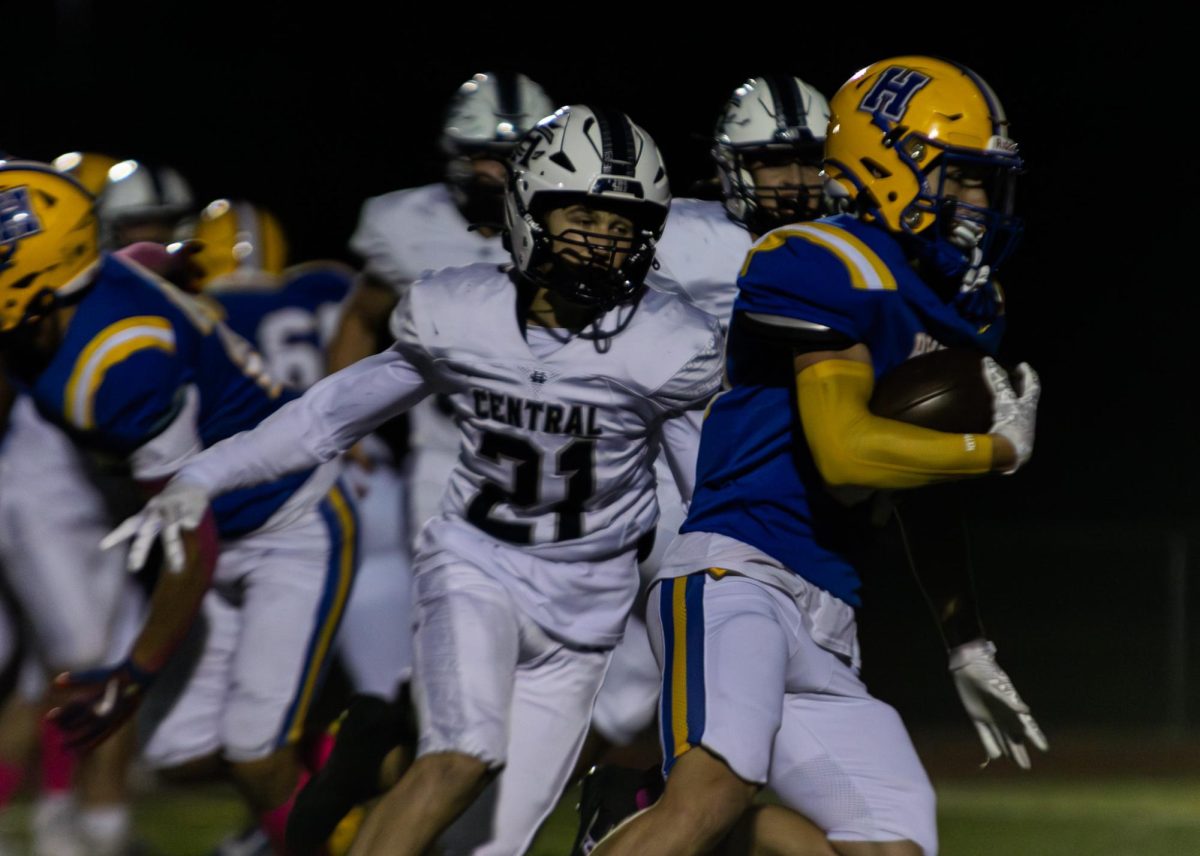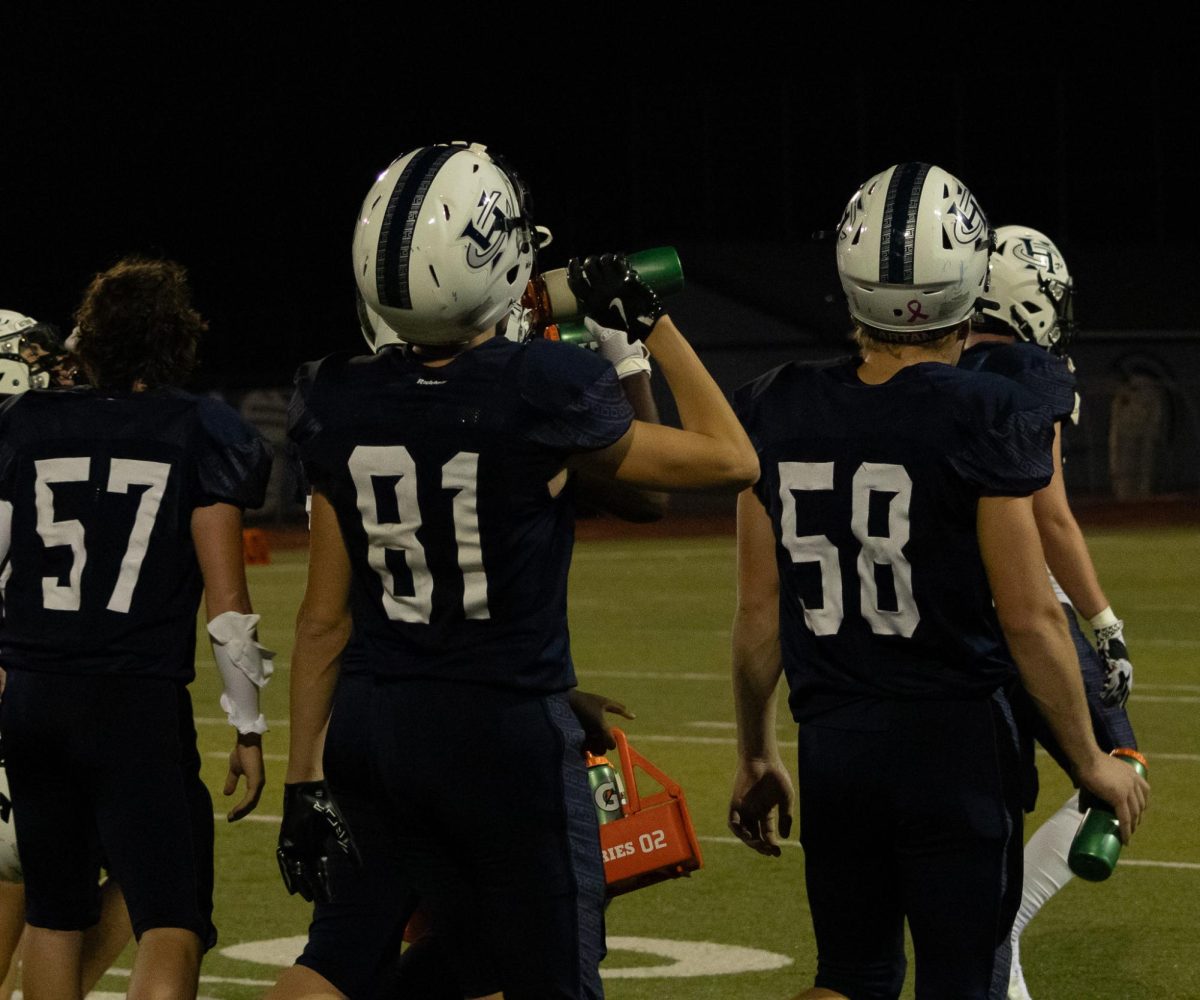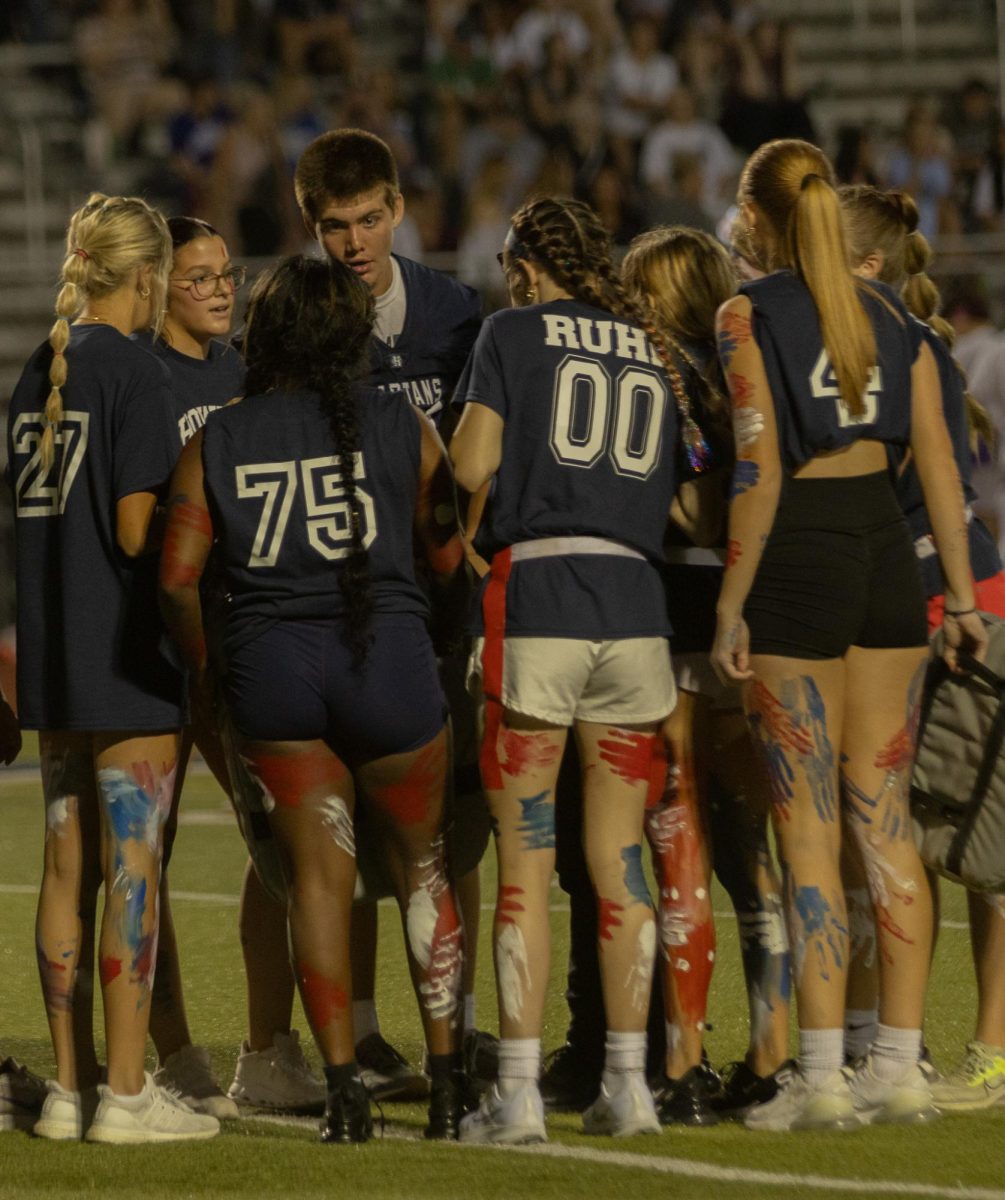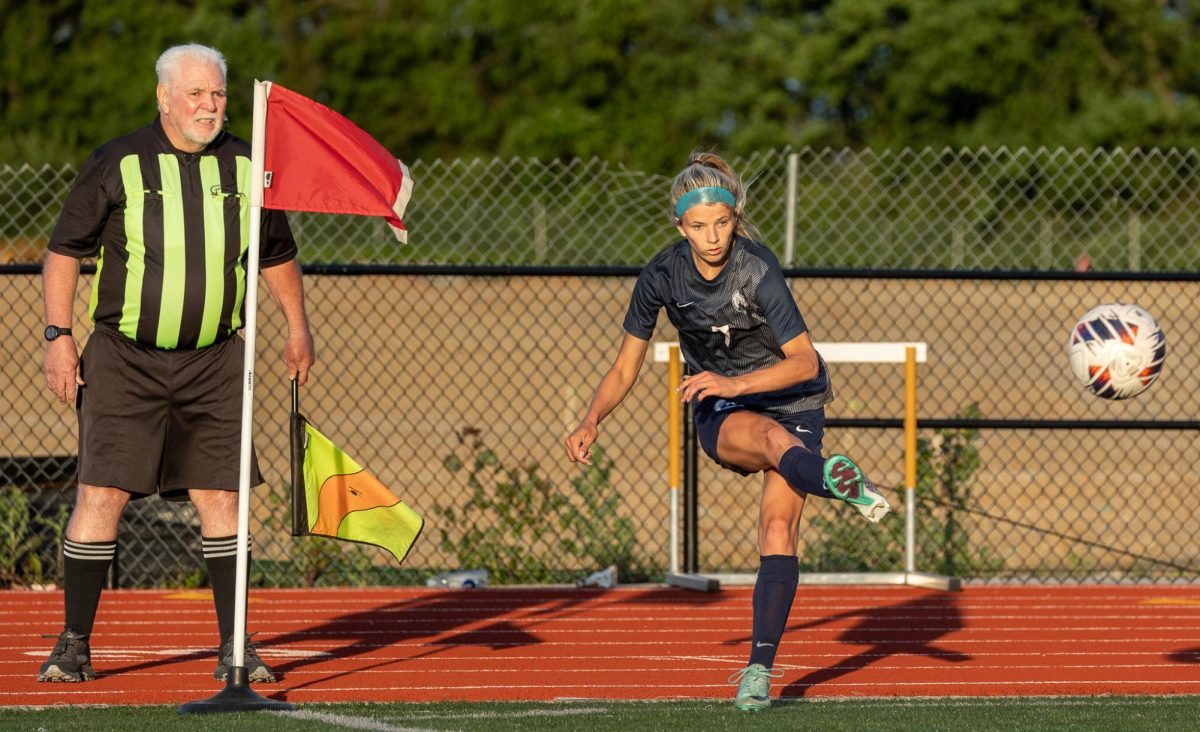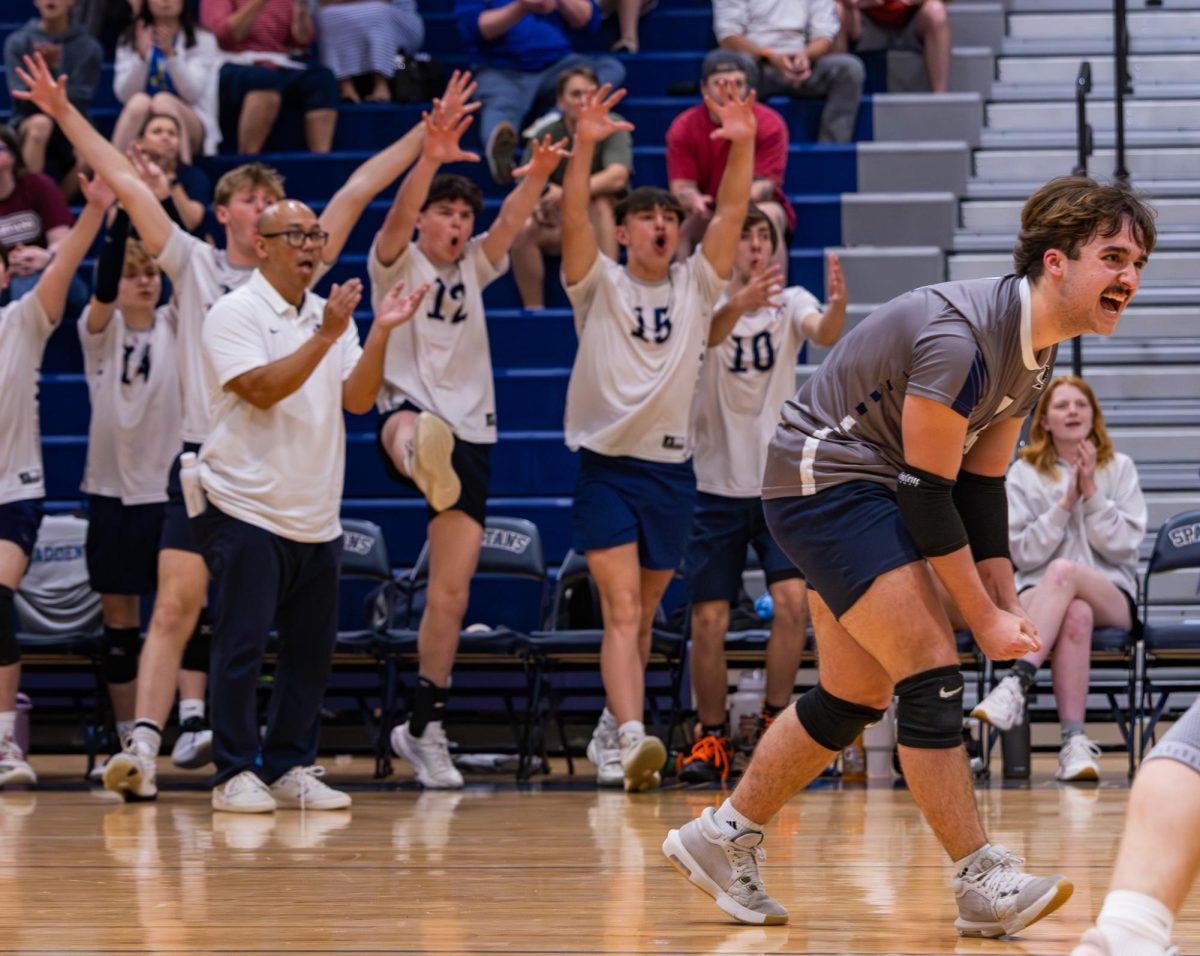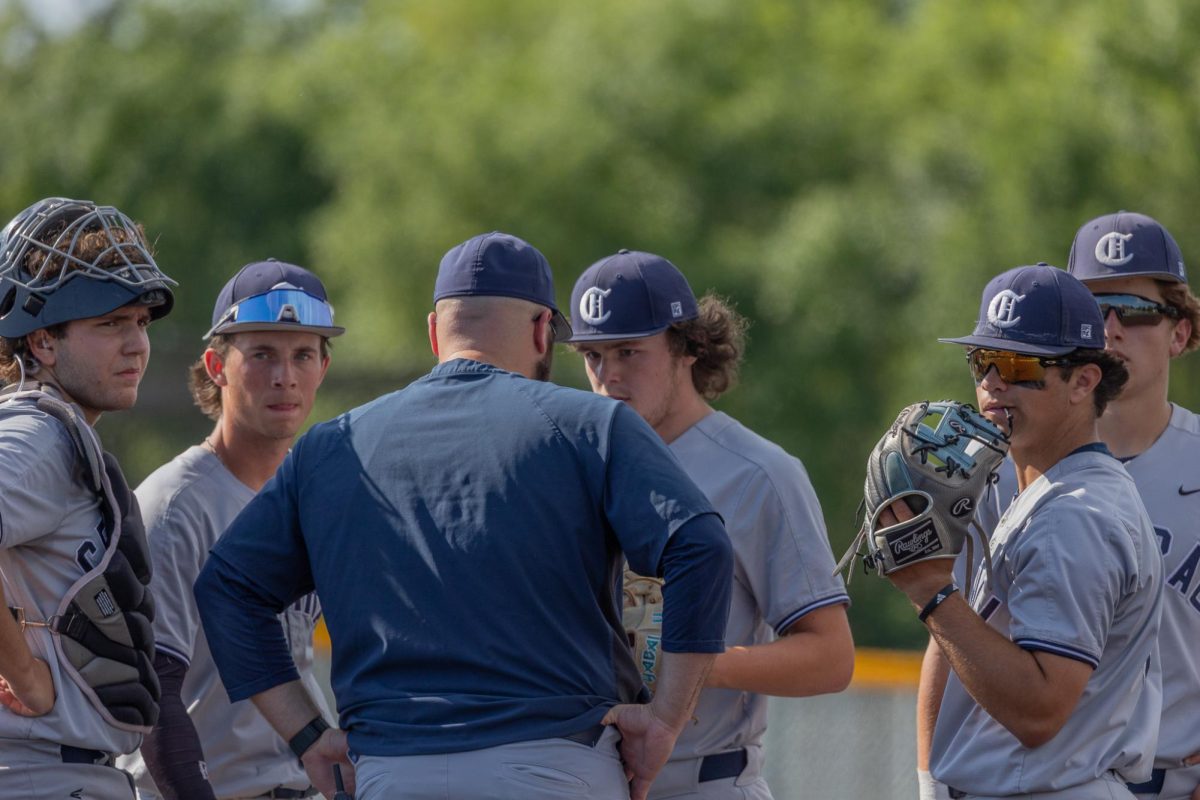As the field lights beam down on the field, helmets and headgear clash against one another. Players can be seen either aggressively yelling at their teammates and opponents from the sidelines, or running after a small, brown, leathery ball and whoever has their hands on it. The harsh ringing of the school bell echoes throughout the halls the next morning, and the raucous laughter of stocky jocks can be heard as they push each other, or sometimes other people, into lockers.
And then the movie buffers. You’re at home watching some coming-of-age high school film, laughing at the dumb jocks and scoffing at the popular bullies that also happen to be football players. It’s just a movie, right? So many films and so much of the media contain stereotypes like these: popular yet stupid, mean, meathead football players. How accurate are they today? Are they based off of something real, or are they hands-down false?
From the bleachers, football is a gritty sport. Physical intensity, lots of competition, high risk and reward—it isn’t for the faint of heart. It’s not uncommon for players to spend hours at practice, and it’s not uncommon for people to assume that football consumes them to the point where it affects everything else in their lives. However, according to Malach Radigan, the head coach of FHC’s football team, that’s not the case.
“For the last two years, we’ve been able to meet the requirements to be on NISCA’s All Academic Team. We pride ourselves in being elite players and elite students,” Radigan said. “We really want to instill in our kids to not just be good at what we’re doing with football. Let’s be good people, good students.”
Radigan knows that football won’t remain a huge part of most of his students’ lives. He’s well aware that grades and identity matter for them, and that what he teaches them will matter in the long run.
“At the end of the day, statistically football ends for over 93% of them after high school. That’s a large portion,” Radigan said. “One day they’re going to be fathers, bosses, employees. So I’m hoping that we are shaping and molding men on our mission. Transcend the stereotype.”
Andrew Martin, a senior member of the football team, knows that he and the team have been working hard to surpass the negative stereotypes.
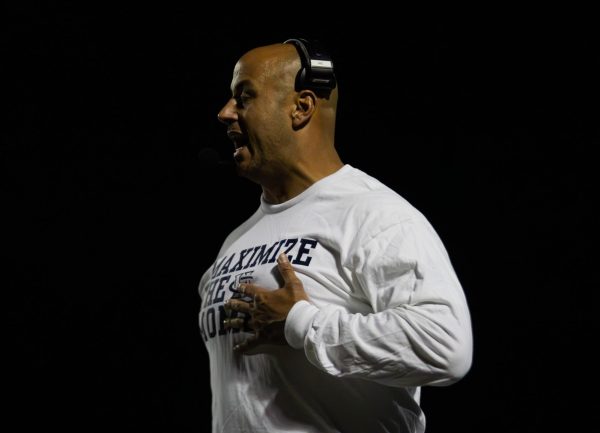
“We go to practice five hours a day. We’re going to mornings and nights. We had a meeting about how our grades have been higher than they have in program history yesterday. Especially our friends and family see that we’re hard workers; I feel like they see all the time and effort we put in. The big thing—especially about being the dumb jocks—is that a lot of the time people don’t realize what actually goes into remembering plays and studying film. We put in hours of mental work, not just physical work.”
As a member of the football team for most of high school, Martin’s well-versed in how much effort players have to put in. Often coaches and players come up with code words and signals for different plays in order to hide their strategy from opposition, even though there are hundreds of plays to memorize. Additionally, as Martin mentioned, it’s a common practice for the whole team to rewatch old games for areas of improvement.
But it’s not all sunshine on and off the field. Although football players are devoted to their sport, they’re not everyone’s favorite. Maggie Hendricks, a senior and member of FHC’s marching band, jazz band, and A-band, feels like the level of support they get is unfair.
“I feel like they’re held up on a higher pedestal just because they’re jocks and play football—when somebody like me, who’s in bands, gets less permission and funding. [The band program] has to find more sources of funding through parents, which I think is a little bit unfair,” she said.
Both Radigan and Martin do, however, believe that some of the stereotypes are somewhat based in reality.
“They see us going out, and we run into each other, we hit people, we tackle, and that’s what they see. It’s not wrong, per se. They just don’t see the behind-the-scenes studying and all that,” Martin said. “There are [players] who definitely make it seem like we’re just dumb jocks, and we need those kids because, yeah, that’s how football is played. And have I seen [stereotypes] affect my teammates? Yeah, I feel like a lot of especially new guys to the sport are affected for a long time,” he said.
Radigan has also recognized that players, especially newer ones, are more vulnerable with cliches.
“If a kid’s insecure in who they are as a person, they’re going to try and default to stereotypes so that they get so they feel seen, so they feel valued. And so we try to learn their character and values and self identity in a way that they’re like, ‘Hey. I don’t have to be defined by things like that,’” he said.
Radigan had his own experience with being a stereotypical football player when he was in high school. Coming from a rough home without an emphasis on character or school, his grades were lackluster and he acted poorly until someone came by and put a stop to it.
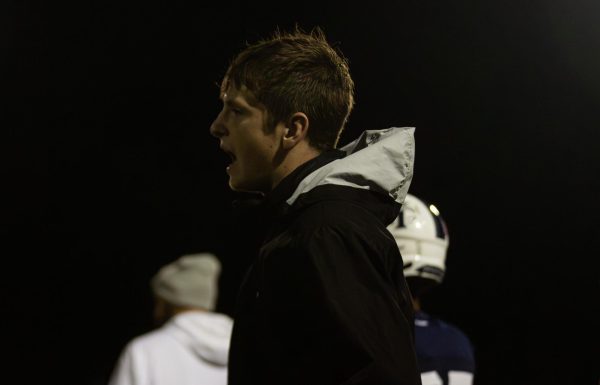
“I defaulted to the dumb jock until I had a coach come along my junior year and challenge me. He said, ‘How you’re living and how you’re acting is not it. So I’m going to raise a standard. You have to meet that standard. You’re not stupid, so stop acting like it.’ It took a coach to believe in me to reach my potential. And I truly believe that affected me throughout college, as a college athlete, and that’s continued to affect me now,” Radigan said.
It’s something he’s taken to heart and aims to help his football players do as well. Radigan describes how, as a current coach, he’s taken to trying to get past stereotypes.
“One day school and football will be gone, and who you are at your core and your dignity matters—so much more than your status or your stats or your stereotype as a high school athlete,” Radigan said.
As students phase in and out of high school, their ideas and identities often change. Even though every kid can’t be a star athlete and every kid can’t become a nice person throughout high school, the team tries.
“I feel like [the players’] attitude needs to change towards other people. I feel like we’ve all separated into our own cliques. But I feel like [stereotypes] could bring down morale a lot,” Hendricks said. “They are important for perspective on other human beings, but I feel like in general they’re more negative than positive because sometimes those perspectives can be exaggerated and aren’t accurate.”




